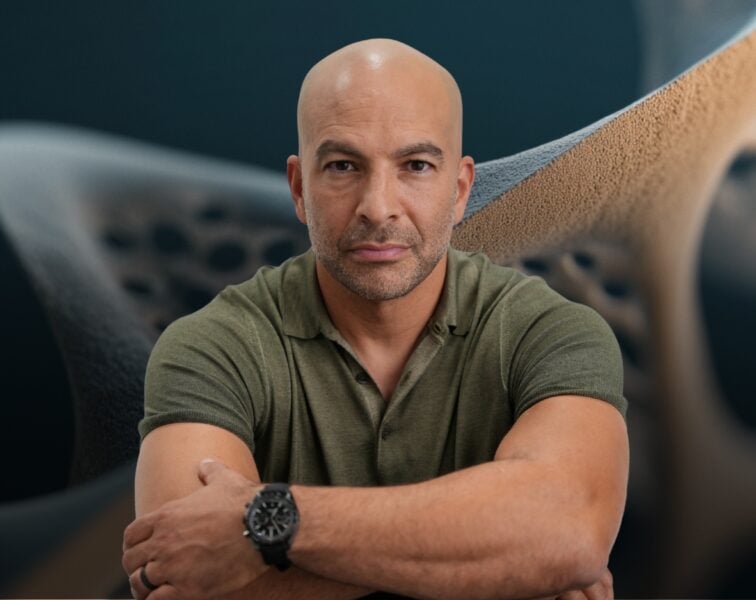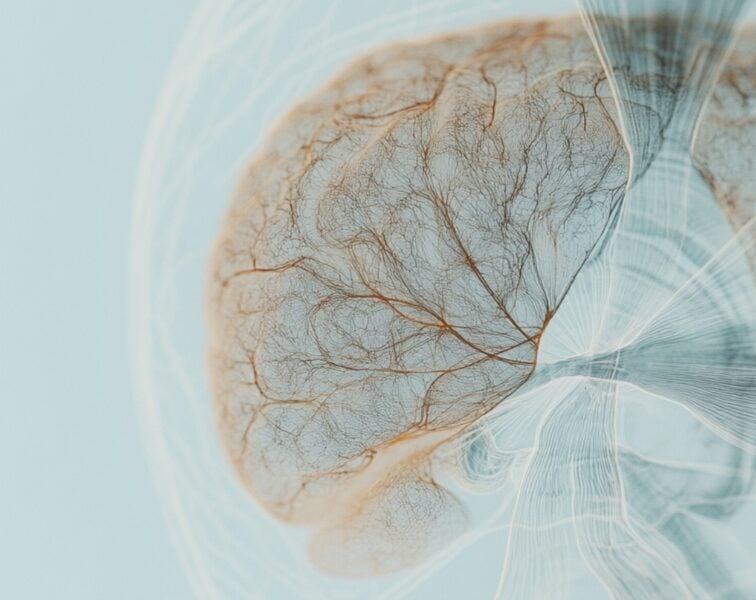Note to listener: It’s with great sadness that we report that Sarah recently lost her battle with lung cancer. As such we’ve decided to republish her episode on April 3, 2022 to honor her, her amazing work, and her courageous cancer journey.
Sarah Hallberg was the Medical Director at Virta Health and a physician who spent nearly two decades treating patients with obesity and type 2 diabetes.
In the first half of this episode, Sarah discusses how she became a huge believer in the efficacy of carbohydrate restriction for the treatment of type 2 diabetes through her research and clinical experience. Sarah challenges the common beliefs about the role of dietary fat and carbohydrate on the plasma makeup of fatty acids and triglycerides. She also expresses the importance of understanding early predictors of metabolic illness—highlighting one particular fatty acid as the most important early predictor—before finishing with a discussion about how doctors might be able to personalize patients’ metabolic management in the future.
In the second half of this episode, Sarah tells the personal story of her own lung cancer diagnosis (skip to the second part of her episode on youtube here). She talks about dealing with her grief, deciding to continue her work while prioritizing her family, and how she devised a plan to extend her survival as long as possible.

Subscribe on: APPLE PODCASTS | RSS | GOOGLE | OVERCAST | STITCHER
We discuss:
- How Sarah discovered the profound impact of carbohydrate restriction for reversing obesity and type 2 diabetes [3:15];
- Prediabetes and metabolic syndrome: prevalence, early signs, and the importance of treating early [16:00];
- Overview of fatty acids, how they are metabolized, and understanding what you see in a standard blood panel [29:15];
- The relationship between diet composition and metabolic markers [35:15];
- Why palmitoleic acid is such an important biomarker [48:15];
- The best early indicators of metabolic disease [1:00:00];
- Personalized management of metabolic illness [1:07:00];
- Sarah’s cancer diagnosis and the beginning of her journey [1:15:15];
- The emotional impact of a devastating diagnosis [1:27:15];
- Sarah’s plan to extend survival [1:36:45];
- Sarah’s aggressive treatment plan [1:47:30];
- Life-threatening complications and the return of her cancer [1:59:00];
- Sarah’s reflections on her approach to life with chronic cancer and balancing her time [2:11:00]; and
- More.
Get Peter’s expertise in your inbox 100% free.
Sign up to receive An Introductory Guide to Longevity by Peter Attia, weekly longevity-focused articles, and new podcast announcements.
How Sarah discovered the profound impact of carbohydrate restriction for reversing obesity and type 2 diabetes [3:15]
High-fat, low-carbohydrate diet for metabolic health
- Some people fear that a low carb, high fat diet will lead to increased insulin resistance and eventually cardiovascular disease
- But a therapeutic, carbohydrate-restricted diet can reduce cardiovascular (CV) risk factors including triglycerides (TGs), improve glycemic control, and even reverse type 2 diabetes (T2DM) in most cases
- Consuming fatty acids (FAs) in the context of a carb-restricted diet shows that the old saying “you are what you eat” is not accurate
- FAs can be confusing to understand, but play an important role in both cardiovascular and diabetes risk
What led Sarah to focus on the management of diabetes?
- Peter and Sarah met through a company called Virta Health, in which Peter is an investor and former advisor
- Sarah has been treating obese patients for more than 25 years, never would have thought her career would take this direction
- Like others trained in the 1980s, Sarah learned in undergrad/master’s in exercise physiology and in med school the best way to address obesity was to eat a low calorie, low fat diet
- But Sarah watched her patients become worse trying to follow this advice
- She felt discouraged about primary care because she “felt like a legal drug dealer”
- Sarah says a lot of the pivots in her career were motivated by anger, “and I was really angry at what was happening on the primary care level”
- Indiana University Health asked her to start an obesity program
- She was able to take time off to study the literature, which docs rarely have time to do
- Listened to lectures by Dr. Steve Phinney and Jeff Volek
“I came to the conclusion … that what I had been saying for well over a decade to so many people was really not founded on good science and that the field of carbohydrate restriction, while still relatively in its infancy at the time, showed much more promise.” —Sarah Hallberg
Sarah’s obesity clinic
- She ended up opening the obesity clinic as a carbohydrate restricted clinic
- Patients lost weight but more importantly found that their diabetes was reversing, with normal blood sugar levels
- “We were pulling them off of insulin at rates that I could never have believed had I not been the physician who was taking care of these patients. It was astronomical, hundreds of units of insulin.”
- Most clinic patients had some kind of metabolic disease and T2DM was the most common
- To get institutional support for the clinic, she gave presentations to all the departments in the med center explaining the scientific evidence behind carb restriction
- Surprisingly, she got no pushback
- even got fellow members of the ambulatory quality committee to unanimously pass an amendment saying that all patients with metabolic disease should at least be provided the option of trying a low carb diet
“As we were seeing these huge changes of … patients just resolving their diabetes, I became really angry because I was like, ‘Where is this? Where’s this in the guidelines? How come I’ve never heard of this before?’ I mean, I hate to be overdramatic, but it truly is quite miraculous for a disease that everyone thought was chronic and progressive, to see people recover from it is quite astounding.” —Sarah Hallberg
Early studies by Sarah
- Conducted an early unfunded study of metabolic improvements with carb restriction
- Also looked at economic advantages because not requiring medication saves money for both the individual and the healthcare system as a whole (expanded on in a later paper)
- Sarah has discussed the results of her research at the National Lipid Association and in a popular TED Talk that has been viewed more than 7 million times
- She met Steve Phinney at a meeting of the Obesity Medicine Association, which “really changed the course of my life”
- Peter has been trying to get Steve on the podcast
- Peter reached out to Steve when he began implementing some of the low carb principles
- Peter had a pre-print copy of Steve and Jeff’s 2011 book The Art and Science of Low Carbohydrate Living (“which might have more highlights and post-its in it than any book I own”)
- Like Sarah, he kept thinking it couldn’t be true because it seems counterintuitive
Prediabetes and metabolic syndrome: Prevalence, early signs, and the importance of treating early [16:00]
- At meetings of the American Diabetes Association, Sarah found that doctors who treated patients for obesity understood her approach, but other specialists worried that it would cure diabetes but give the patient heart disease
- Many doctors, including leaders, acknowledged it works but said patients could not stick with it, which was not what Sarah saw in her practice
- Pioneering work of Steve and Jeff and Eric Westman was valuable, but Sarah thought they needed large trials focused on patients with T2DM
- She says T2DM patients should be the target because biggest impact on that population
- Sarah’s chance meeting with Steve at the Obesity Medicine Association led to funding for a large clinical trial that is just finishing now
- Many papers have already come out of the trial, the latest of which (on prediabetes) was published on the day of this this interview
- Latest paper studied patients with prediabetes [defined as having a hemoglobin A1c (HbA1c) level of 5.7 to 6.4] who received remote continuous support to maintain a ketogenic diet for 2 years
- Reach the prediabetes range when fasting glucose is over 110
- But Sarah emphasizes that insulin resistance can cause significant problems in people who still have normal blood sugars
- In this study, subjects had insulin resistance long enough that their pancreas and the β-cells could not make enough insulin to keep blood sugar normal, so and their blood sugar started to rise
- Not yet to the T2DM level, but see the impact of insulin resistance as the pancreas has been overworked for far too long
- Around 10% of the U.S. population now has T2DM
- much more concerning levels in different minority populations, which is a huge goal with improving health equity in this country
- Level is “well into the teens” in Hispanic, African American, and Pacific Islander populations in US
- In Peter’s podcast with Gerry Shulman about insulin resistance, they discussed the long-term course of diabetes
- Can have normal fasting glucose and fasting insulin but elevated postprandial insulin, which is an early sign of insulin resistance than can lead to high postprandial glucose
- By the time someone is labeled “prediabetic” the process has been going on for 5 to 10 years
- More than 1/3 of Americans are either prediabetic or diabetic
“This should shock everyone to the core. … 88% of Americans are not in optimal metabolic health.”
{end of show notes preview}
Would you like access to extensive show notes and references for this podcast (and more)?
Check out this post to see an example of what the substantial show notes look like. Become a member today to get access.

Sarah Hallberg, D.O., M.S.
Dr. Sarah Hallberg is a physician and exercise physiologist. The founder and Medical Director of the Medically Supervised Weight Loss program at Indiana University Arnett, she is also the Medical Director at Virta Health and an adjunct clinical assistant professor of medicine at Indiana University School of Medicine. An expert on metabolic control and type 2 diabetes, Dr. Hallberg is also the executive director of The Nutrition Coalition, a nonprofit organization that aims to strengthen national nutrition policy. Her TEDx talk “Reversing Type 2 diabetes starts with ignoring the guidelines” has been viewed more than 7 million times. Dr. Hallberg is board certified in internal medicine, obesity medicine, and lipidology. She received her bachelor’s and master’s degrees in kinesiology and exercise science from Illinois State University and her degree in medicine from Des Moines University.
Twitter: @DrSarahHallberg
Instagram: @sarahhallberg
Facebook: Sarah Hallberg



